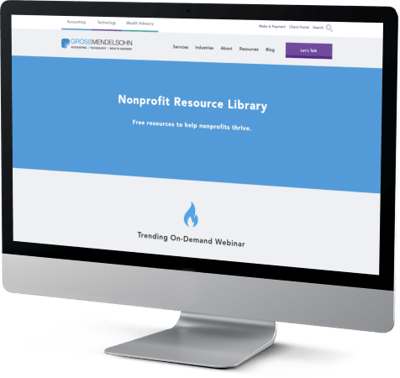One of the most misunderstood components of any nonprofit organization is the board of directors. Nonprofits typically base board member selection on two things: the candidate’s interest in the organization’s mission and the size of the candidate’s wallet. What many nonprofits fail to realize is that these qualities, while desirable, shouldn’t serve as the basis for their board recruitment efforts.
It’s important to populate your board with members who are able and willing to put in the effort to see your nonprofit succeed. The question is, which types of people do you need for a successful board?
1. An Existing Volunteer or Donor
If there were a recipe for the perfect board member, passion would be the key ingredient. You want board members who are interested and committed to your organization’s success, not just tacking a new title to their professional bio.
Look to your existing volunteers and donors, many of whom already have a proven track record of commitment to your organization, to bring passion and a mission driven focus to your nonprofit’s board. These individuals will most likely gladly attend meetings, serve on committees, help drive programming and ensure your organization is fulfilling its mission.
2. Those Who’ve Walked a Mile In Your Clientele’s Shoes
Nonprofits are businesses, and as such, keeping your “customers” happy should take top priority. Having a member or members who understand your clientele — whether they’ve been in the same situation or spent extensive time with those who have — is a necessity when constructing your board. These individuals can provide:
- Valuable insights into the needs of your customers
- First-hand knowledge of resources and programs currently available for your clientele
- Information that can differentiate you from similar nonprofits who aren’t as well tuned to those they serve
3. Service Professionals
Professionals like attorneys, CPAs and bankers can serve as content matter experts for your organization by serving as a resource to review contracts, financial documents and agreements. These individuals can also provide insight and suggestions that assist management when making decisions. Service professionals will most likely look at situations from a governance perspective, which will provide necessary diversity in opinion when making key business decisions.
4. Business Leaders
Many nonprofits make the mistake of viewing business leaders as simply executives with deep pockets. However, these successful and business-savvy men and women have much more to offer than a fat check. Business leaders have the knowledge and expertise needed to help your organization make sound business choices. These leaders also have connections with other executives and community leaders who can serve as contributors and help spread the word about your organization.
5. Young Professionals
If you are looking for an energetic and passionate board member who likely doesn’t yet have the time requirements required by a family or other organizations, consider adding a young professional to your board. Young professionals can provide:
- A fresher perspective on solving old problems
- Access to new networks of contacts
- Prior experience and knowledge from working with other nonprofits (Remember, millennials are one of the most civic-minded generations to date)
- New ideas for communicating with your stakeholders, such as through social media
How Can You Strengthen Your Existing Board of Directors?
Board engagement and recruitment is an ongoing and major challenge for many nonprofits. For do's and don'ts on board engagement, check out our on-demand webinar on building a better board. This webinar covers:
- How identify the right (and wrong) board members for your organization
- Ways to improve board accountability
- Simple strategies to boost board engagement
Need Help?
Contact our Nonprofit Group online or call 800.899.4623.


